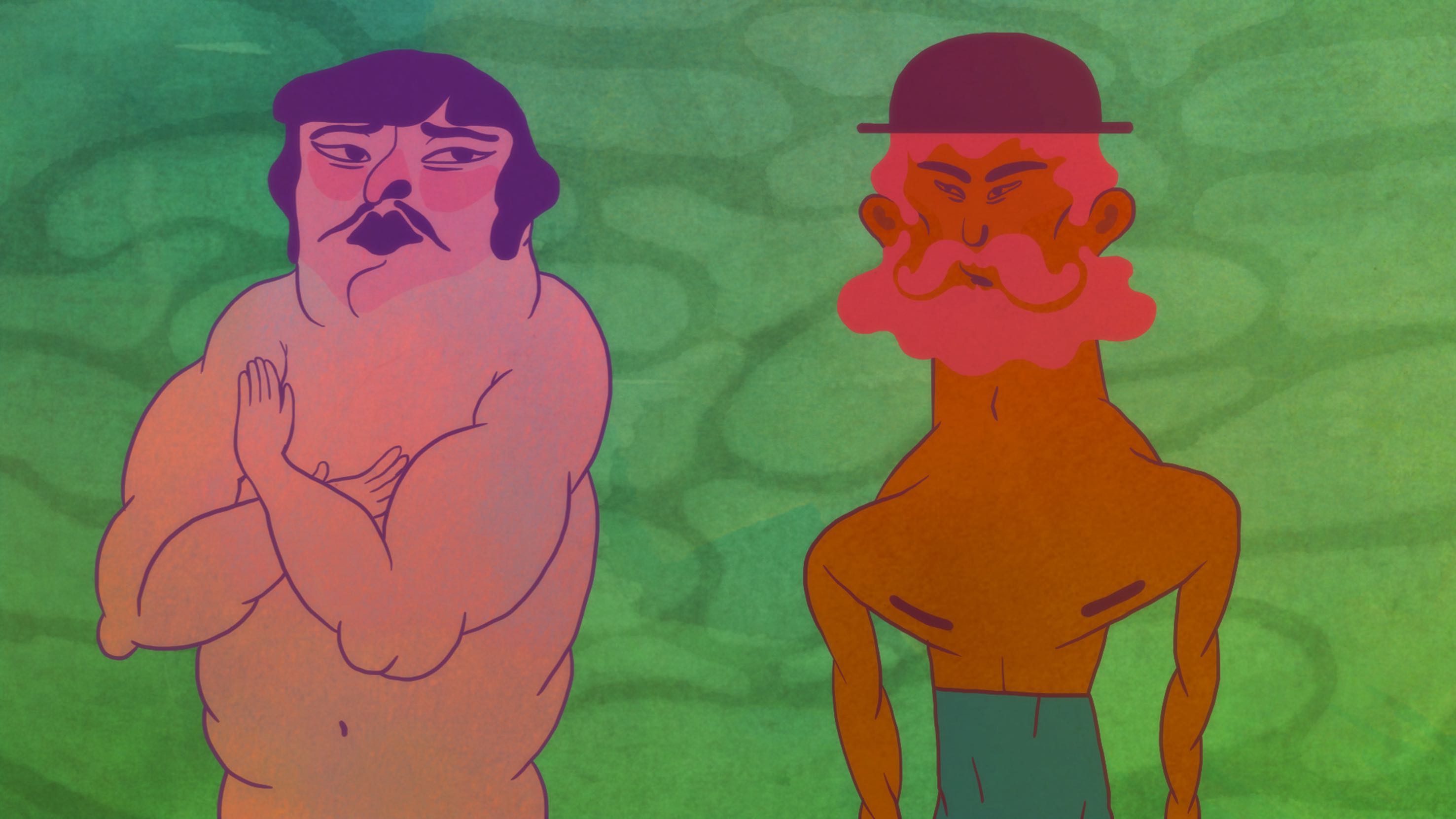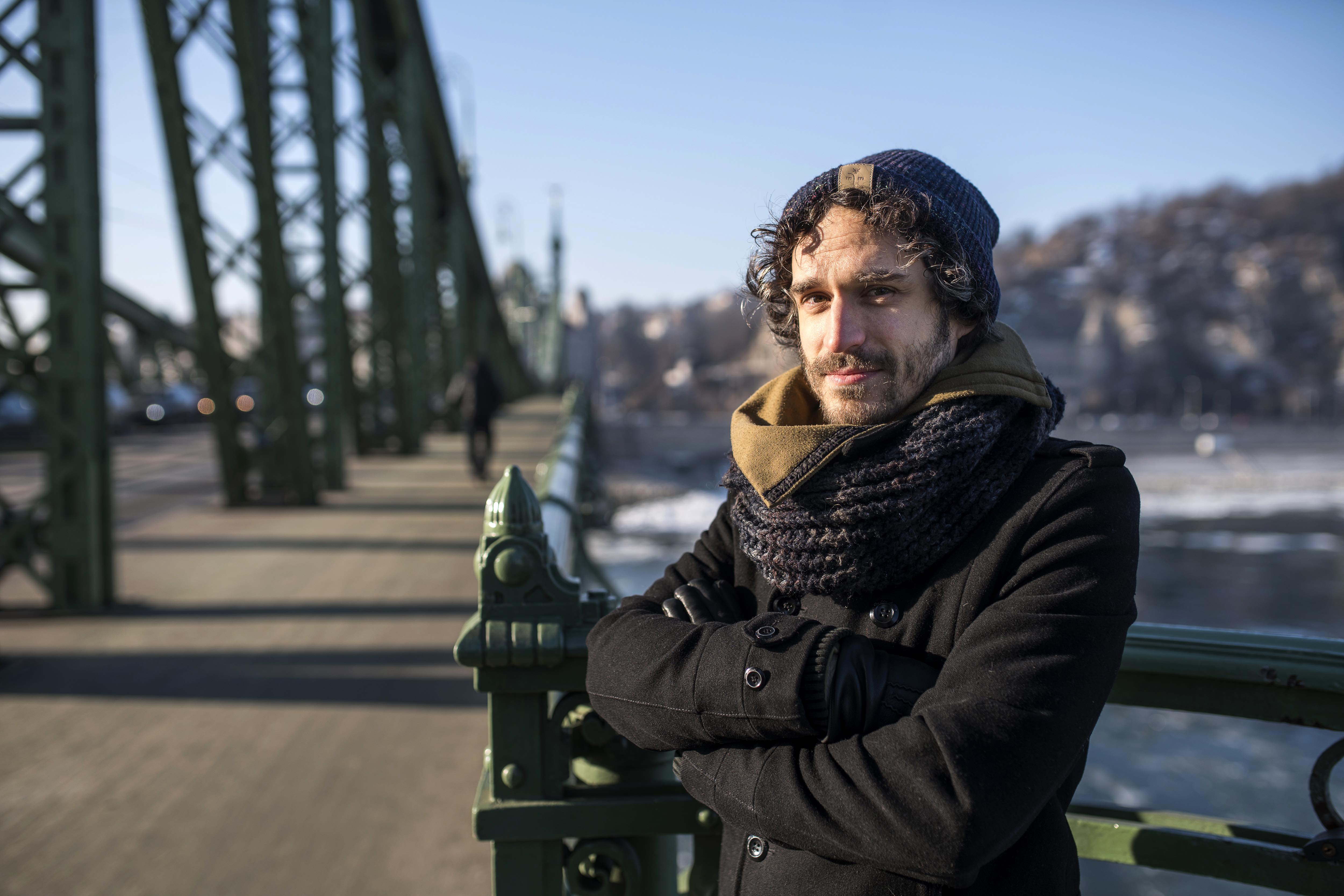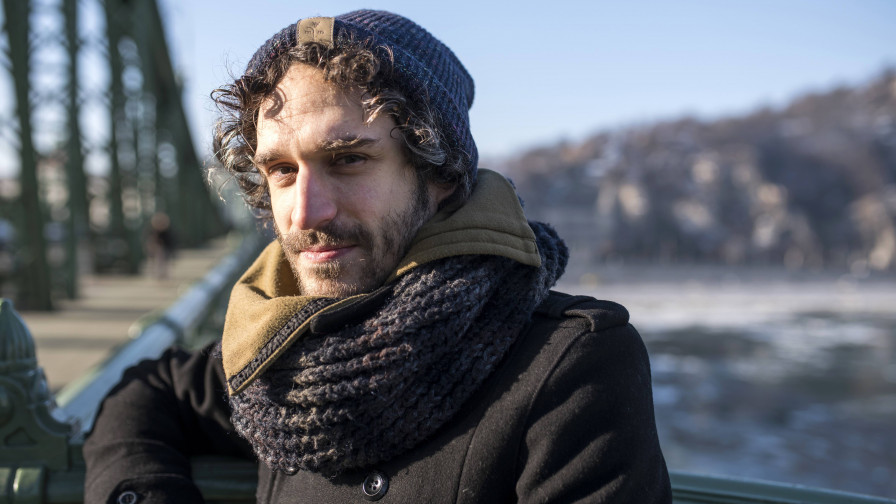It's the Sound that Makes it Real
Péter’s interest in sound started in primary school and stayed with him all the way through to the Film Department at ELTE University. "The most important film in my life at the time was 'Terminator 2’, and it’s still one of my favourites. As the years passed I got more and more involved in film, but it was strange that no one really cared about teaching sound. It started to interest me on a theoretical level, and when we had to shoot a graduation short at university I was the only one who was interested in it.”
After finishing university and with some experience under his belt, Péter applied for a year-long HAESF (Hungarian American Enterprise Scholarship Funds) in a small studio in New York. "I got some experience in post-production and shooting, just enough to learn the basics. When I came back I started working with Rudolf Várhegyi, an outsider just like me. Most people start out as engineers and then move on to sound before starting to work on films. That process has changed in recent years, and we are trying to forget the title of 'sound engineer’ because most people are not at all engineers.”

Although there is a 'sound master’ class at the SZFE (University of Theatre and Film Arts), Péter did not want to learn it at school. Instead he started out with odd jobs, being recommended by friends, and then worked his way up. "Learning basic engineering skills is useful in terms of technical details, but it doesn’t teach you the artistic side of things. I got my first jobs because directors recommended me to each other. At first a friend introduced me to the animation director Balázs Turay, who got me involved in MOME Anim, and Péter Fancsikai, who introduced me to Krétakör, a Hungarian contemporary theatre group. I was working with Marcell Rév when he asked me to help out in the graduation shorts of SZFE. That’s how I got to know György Mór Kárpáti, Gábor Reisz and Bálint Szimler. That’s how it all started.”
At the same time as working in graduation films, plays and animated shorts, Péter started collaborating with animation director Réka Bucsi on her short film 'Symphony No. 42’. This turned out to be an important milestone in Péter’s career. "I didn’t just work on the sound, I also helped out during the whole creative process. We had time to figure it out properly, and Réka and I had the same vision and concept of how the film should work.” Since then they created 'Love' together, which was in competition at the Berlinale Shorts last year, just as ‘Symphony No. 42’ had been in 2014.

Péter also contributed from the very beginning to the making of Luca Tóth’s ‘Superbia’, where for the first time he was credited as a producer. “I started producing the same way I started sound engineering – I didn’t work as an intern besides a big-time producer, it just happened. I wanted to work with Gábor Osváth, who helped a lot on the film. I examined how he worked and tried to learn along the way. I was interested and wanted to comment on it, as well as help the films. I trust my taste, which is why I wanted to try my luck in producing.”
Péter hasn’t worked as a full-time technician on shootings since 2015, when he worked on 'Balaton Method', a sketch film made of 17 video clips of mostly live recordings of Hungarian bands. He spent 10 days working on '1945' (premiering in the Panorama selection), and his next fieldwork will be the new feature from Gábor Reisz ('For Some Inexplicable Reason') called 'Bad Poems'. "Tamás Zányi said that working on a shoot is like joining the army. Everyone has to be ready and prepared at 6 in the morning. I fully respect the work of sound technicians who work on shoots; it’s a very hard job, but I find post-production more interesting.”

After months of hard work, Péter has just finished the sound of his first feature, which was supported by the Hungarian Film Fund. ‘On Body and Soul’, by Ildikó Enyedi, is competing for the Golden Bear this year. “There are some similarities in the films that I worked on that were selected for the festival. Both ‘On Body and Soul’ and 'Volcano Island' (the animated short film by Anna Katalin Lovrity, premiering in Generations) have a similar, calm pace, and both are about relationships between men and women. When the budget allows me, I like to divide the tasks up between a couple of people, which was possible in Ildikó Enyedi’s film. But I can’t really do that in an animation short because it’s always a complex job and I feel like I have to work on every segment in order to like the final result.”
Péter’s showreel is already diverse, but there are some genres that he would like to try out in the future. “Working on a sci-fi movie would be very exciting. In fiction features, I think sci-fis have the most interesting sound design, and they’re starting to have the same effects as animated films. Unreal and impossible things happen in a supposedly real world, which makes it similar to animation. Something that is visually accurate happens, but it’s the sound that makes it real for the viewers. In both genres you have to invent the world that surrounds the characters.”
As for role models, Péter respects the work of old-time geniuses, and one in particular from his home country. “Amongst my favourites there’s Ben Burtt and Walter Murch, who was one of the revolutionaries of New Hollywood, and from home it would have to be Tamás Zányi, who is still the best in the field. No one seems to be able to catch up to his genius. The sound world that they created in ‘Son of Saul’ is still outstanding, on an international level too. Besides these people, it always depends on the films and the directors. For good sound, there always needs to be a visionary director who figures it all out in their mind and knows how to connect all the creative energies.”
Janka Pozsonyi
